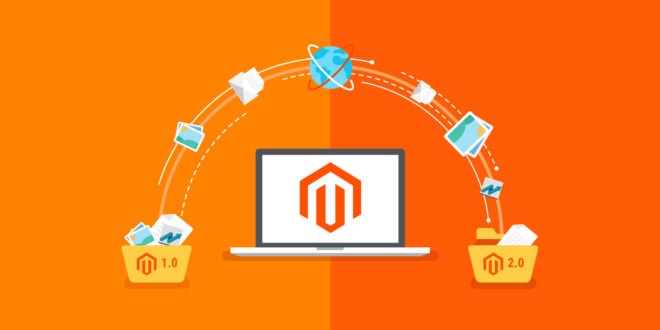eCommerce is on the rise with an estimated 12-24 million websites across the entire globe. A significant part of those websites is managed on Magento, one of the most popular platforms out there.
While it powers 2.3% of all eCommerce websites worldwide, native Magento functionality is not always enough to beat the competition. That’s why all Magento stores resort to extensions to amplify Magento features.
Since not everyone knows why Magento extensions are required, in this post you’re going to learn what it is, and where you can get highly rated Magento 2 extensions https://magefan.com/magento-2-extensions.
What is Magento Extension?

Magento extension is a package of code developed to perform certain functions in your Magento store. Technically it’s a directory of XML and PHP files in controllers, helpers, blocks, and models.
Magento 2 extension allows developers to extend or replace Magento core code instead of editing it to customize the platform according to one’s business needs and objectives.
Besides, developers rely on the design pattern MVC (model-view-controller) in extension development. It allows packaging the code of the extension in modules to eliminate issues related to compatibility with other extensions by replacing or modifying separate modules.
At the same time, many consider the Magento extension and Magento module to be the same thing which is not quite it.
What is the Difference Between Magento Extension and Magento Module?
It’s true both Magento extensions and Magento modules are similar. However, the “module” often refers to the core code that is a part of Magento, while “extension” 一 to a package component that extends or customizes Magento.
Benefits of Magento 2 Extensions

As we’ve started previously, eCommerce is booming now, and to beat the rising competition many stores resort to Magento 2 extensions. With different varieties of them, which we’ll discuss later, many still wonder what exactly those extensions give you.
So, let’s break down the benefits of the Magento 2 extension for your business.
Improve user experience
Usability is one of the most important factors that influence the customer experience in your store. Your website should be easy to navigate, fast to load, and with a simple checkout process. The easier the customers’ journey on your website is the higher the likelihood of customers coming back.
Magento 2 speed optimization extensions, checkout extensions, and layered navigation extensions will help you with that.
Better order management
Since high conversion rates are an ultimate goal of any business, you have to keep a close eye not only on the easy checkout process but the order management. There are multiple extensions that help you change order statuses, group, filter, and edit orders.
But such extensions not only help you streamline the management on the backend. They also help in providing better customer support and experience in case customer contact you and ask to change or edit some information in their orders.
Broader audience and more traffic
You can have the best navigation menu and the “cleanest” checkout page but if there is no traffic flow, there won’t be any sales. Sad truth as it is. But it doesn’t have to be that way if you decide to use some extension to improve that.
There are plenty of extensions such as blog and social media banners that help to drive more attention to your website and products from google and social media networks. It’s hard to even count the number of those extensions. Opportunities are limitless.
Each Magento extension contributes to customer experience more or less, as you can see. Without them it would be hard to reach your business objectives, considering the competition is exploring all of the best extension opportunities to beat you.
This takes us to the varieties of extensions and where you can find the best of them.
Varieties of Magento Extensions

Due to the rising popularity of the Magento platform and growing community, there is a huge number of Magento extensions you can incorporate into your system.
So, let’s discuss what Magento 2 extensions are there and where you can find them.
Magento Marketplace Extensions
Magento has given rise to a marketplace called Magento Marketplace which features multiple third-party extensions from numerous vendors. It is an official Magento website, that’s why there is an extensive quality program that verifies the Magento extension code. Correspondingly all extensions listed there meet Magento code standards and the best practices.
Out-of-the-box extensions
Except for the extensions presented on their marketplace, Magento goes with the pre-packaged vendor-bundled extensions out of the box. So these extensions are installed when you install Magento 2. However, to use them you’ll have to set up an account with those vendors.
Some pre-packaged extensions do come in handy, but it is not obligatory to use them. Those are Klarna, Yotro, Vertex, Braintree, and others.
Third-party extensions
Magento Marketplace is not the only place where you can find Magento extensions. Usually, all of the vendors listed there have their own websites featuring the same extensions. These extensions are free, cheap, and easily accessible.
But, in fact, you can’t always verify the quality of the code in third-party extensions. A huge community of developers works on developing extensions. So you have to choose only highly trusted companies and vendors.
Custom-built extensions
The overuse of Magento extensions, especially poorly coded can hamper your store performance. So last but not least recommended option is to use custom-built extensions. It usually doesn’t code cheap, but it offers you exactly the functionality in Magento that you need. Plus custom extensions are built with regard to your store performance and available resources.

What Magento 2 Extensions to Choose?
The quality of the code is one of the most important features to look for when choosing the Magento extension for your store. While it can satisfy your needs and do “as it promises” the code can alter other store functionality, cause issues, and influence performance drastically.
The best of all is to go for a custom-built Magento 2 extension or thoroughly test the third-party extension before implementing it on a live website.
 Hi Boox Popular Magazine 2024
Hi Boox Popular Magazine 2024



